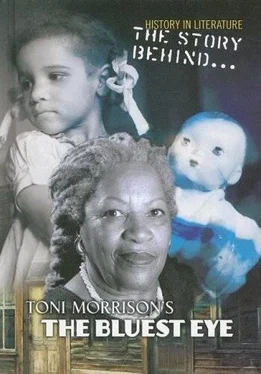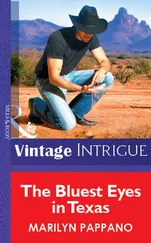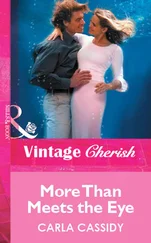SEETHEDOGBOWBOWGOESTHEDOGDOYOUWANTTOPL
AYDOYOUWANTTOPLAYWiTHJANESEETHEDOGRUNR
Once there was an old man who loved things, for the slightest contact with people produced in him a faint but persistent nausea. He could not remember when this distaste began, nor could he remember ever being free of it. As a young boy he had been greatly disturbed by this revulsion which others did not seem to share, but having got a fine education, he learned, among other things, the word "misanthrope." Knowing his label provided him with both comfort and courage, he believed that to name an evil was to neutralize if not annihilate it. Then, too, he had read several books and made the acquaintance of several great misanthropes of the ages, whose spiritual company soothed him and provided him with yardsticks for measuring his whims, his yearnings, and his antipathies. Moreover, he found misanthropy an excellent means of developing character: when he subdued his revulsion and occasionally touched, helped, counseled, or befriended somebody, he was able to think of his behavior as generous and his intentions as noble. When he was enraged by some human effort or flaw, he was able to regard himself as discriminating, fastidious, and full of nice scruples. As in the case of many misanthropes, his disdain for people led him into a profession designed to serve them. He was engaged in a line of work that was dependent solely on his ability to win the trust of others, and one in which the most intimate relationships were necessary. Having dallied with the priesthood in the Anglican Church, he abandoned it to become a caseworker. Time and misfortune, however, conspired against him, and he settled finally on a profession that brought him both freedom and satisfaction. He became a "Reader, Adviser, and Interpreter of Dreams." It was a profession that suited him well. His hours were his own, the competition was slight, the clientele was already persuaded and therefore manageable, and he had numerous opportunities to witness human stupidity without sharing it or being compromised by it, and to nurture his fastidiousness by viewing physical decay. Although his income was small, he had no taste for luxury-his experience in the monastery had solidified his natural asceticism while it developed his preference for solitude. Celibacy was a haven, silence a shield. All his life he had had a fondness for things-not the acquisition of wealth or beautiful objects, but a genuine love of worn objects: a coffee pot that had been his mother's, a welcome mat from the door of a rooming house he once lived in, a quilt from a Salvation Army store counter. It was as though his disdain of human contact had converted itself into a craving for things humans had touched. The residue of the human spirit smeared on inanimate objects was all he could withstand of humanity. To contemplate, for example, evidence of human footsteps on the mat-absorb the smell of the quilt and wallow in the sweet certainty that many bodies had sweated, slept, dreamed, made love, been ill, and even died under it. Wherever he went, he took along his things, and was always searching for others. This thirst for worn things led him to casual but habitual examinations of trash barrels in alleys and wastebaskets in public places… All in all, his personality was an arabesque: intricate, symmetrical, balanced, and tightly constructed-except for one flaw. The careful design was marred occasionally by rare but keen sexual cravings. He could have been an active homosexual but lacked the courage. Bestiality did not occur to him, and sodomy was quite out of the question, for he did not experience sustained erections and could not endure the thought of somebody else's. And besides, the one thing that disgusted him more than entering and caressing a woman was caressing and being caressed by a man. In any case, his cravings, although intense, never relished physical contact. He abhorred flesh on flesh. Body odor, breath odor, overwhelmed him. The sight of dried matter in the corner of the eye, decayed or missing teeth, ear wax, blackheads, moles, blisters, skin crusts-all the natural excretions and protections the body was capable of-disquieted him. His attentions therefore gradually settled on those humans whose bodies were least offensive-children. And since he was too diffident to confront homosexuality, and since little boys were insulting, scary, and stubborn, he further limited his interests to little girls. They were usually manageable and frequently seductive. His sexuality was anything but lewd; his patronage of little girls smacked of innocence and was associated in his mind with cleanliness. He was what one might call a very clean old man. A cinnamon-eyed West Indian with lightly browned skin. Although his given name was printed on the sign in his kitchen window, and on the business cards he circulated, he was called by the townspeople Soaphead Church. No one knew where the "Church" part came from-perhaps somebody's recollection of his days as a guest preacher-those reverends who had been called but who had no flock or coop, and were constantly visiting other churches, sitting on the altar with the host preacher. But everybody knew what "Soaphead" meant-the tight, curly hair that took on and held a sheen and wave when pomaded with soap lather. A sort of primitive process. He had been reared in a family proud of its academic accomplishments and its mixed blood-in fact, they believed the former was based on the latter.
A Sir Whitcomb, some decaying British nobleman, who chose to disintegrate under a sun more easeful than England's, had introduced the white strain into the family in the early 1800's.
Being a gentleman by order of the King, he had done the civilized thing for his mulatto bastard-provided it with three hundred pounds sterling, to the great satisfaction of the bastard's mother, who felt that fortune had smiled on her. The bastard too was grateful, and regarded as his life's goal the hoarding of this white strain. He bestowed his favors on a fifteen-year-old girl of similar parentage. She, like a good Victorian parody, learned from her husband all that was worth learning-to separate herself in body, mind, and spirit from all that suggested Africa; to cultivate the habits, tastes, preferences that her absent father-in-law and foolish mother-in-law would have approved. They transferred this Anglophilia to their six children and sixteen grandchildren. Except for an occasional and unaccountable insurgent who chose a restive black, they married "up," lightening the family complexion and thinning out the family features. With the confidence born of a conviction of superiority, they performed well at schools. They were industrious, orderly, and energetic, hoping to prove beyond a doubt De Gobineau's hypothesis that "all civilizations derive from the white race, that none can exist without its help, and that a society is great and brilliant only so far as it preserves the blood of the noble group that created it." Thus, they were seldom overlooked by schoolmasters who recommended promising students for study abroad. The men studied medicine, law, theology, and emerged repeatedly in the powerless government offices available to the native population. That they were corrupt in public and private practice, both lecherous and lascivious, was considered their noble right, and thoroughly enjoyed by most of the less gifted population. As the years passed, due to the carelessness of some of the Whitcomb brothers, it became difficult to maintain their whiteness, and some distant and some not so distant relatives married each other. No obviously bad effects were noticed from these ill-advised unions, but one or two old maids or gardener boys marked a weakening of faculties and a disposition toward eccentricity in some of the children. Some flaw outside the usual alcoholism and lechery.
They blamed the flaw on intermarriage with the family, however, not on the original genes of the decaying lord. In any case, there were flukes. No more than in any other family, to be sure, but more dangerous because more powerful. One of them was a religious fanatic who founded his own secret sect and fathered four sons, one of whom became a schoolmaster known for the precision of his justice and the control in his violence. This schoolmaster married a sweet, indolent half-Chinese girl for whom the fatigue of bearing a son was too much. She died soon after childbirth. Her son, named Elihue Micah Whitcomb, provided the schoolmaster with ample opportunity to work out his theories of education, discipline, and the good life. Little Elihue learned everything he needed to know well, particularly the fine art of self-deception. He read greedily but understood selectively, choosing the bits and pieces of other men's ideas that supported whatever predilection he had at the moment. Thus he chose to remember Hamlet's abuse of Ophelia, but not Christ's love of Mary Magdalene; Hamlet's frivolous politics, but not Christ's serious anarchy. He noticed Gibbon's acidity, but not his tolerance, Othello's love for the fair Desdemona, but not Iago's perverted love of Othello. The works he admired most were Dante's; those he despised most were Dostoyevsky's. For all his exposure to the best minds of the Western world, he allowed only the narrowest interpretation to touch him. He responded to his father's controlled violence by developing hard habits and a soft imagination. A hatred of, and fascination with, any hint of disorder or decay. At seventeen, however, he met his Beatrice, who was three years his senior. A lovely, laughing big-legged girl who worked as a clerk in a Chinese department store. Velma.
Читать дальше











